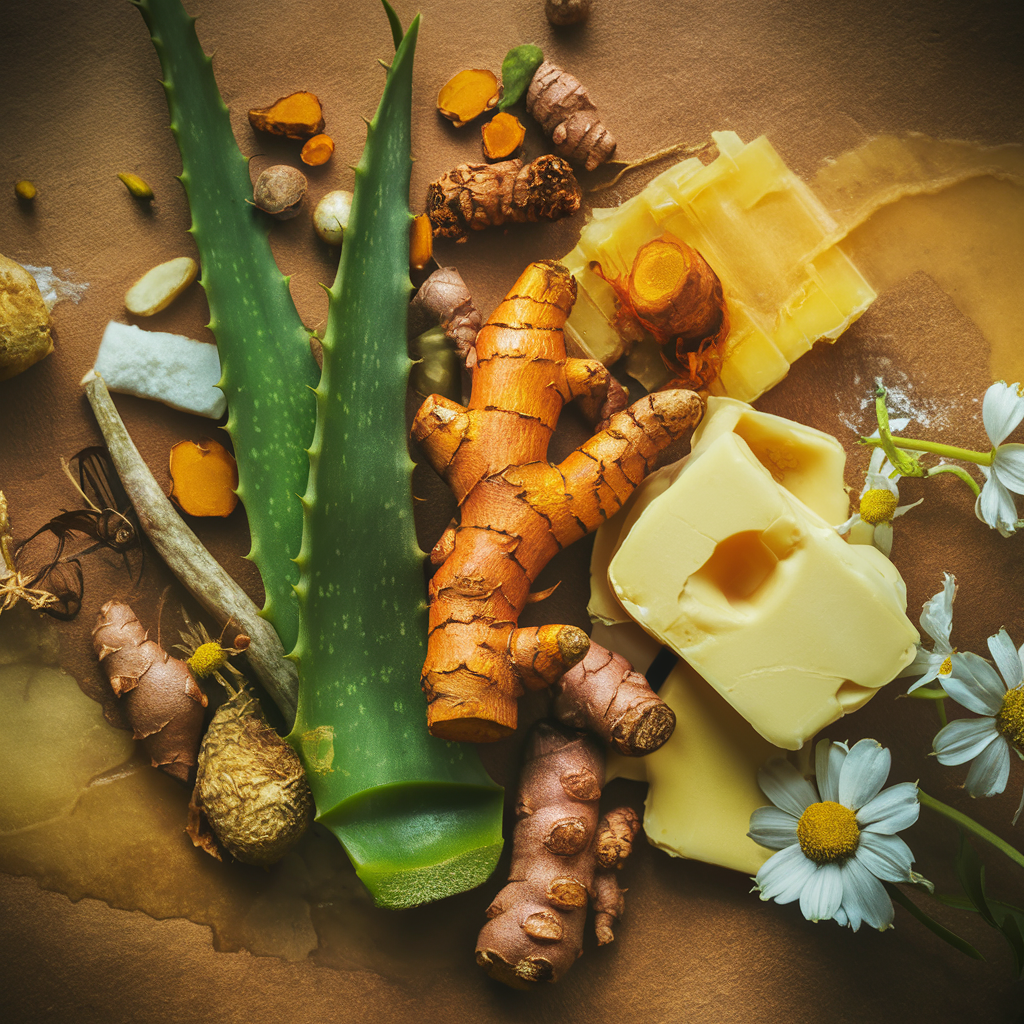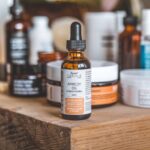- Natural remedies like cocoa butter, coconut oil and aloe vera may help reduce the appearance of stretch marks, but scientific evidence on their effectiveness is limited.
- Cocoa butter, shea butter, and coconut oil are popular for their moisturizing properties, but they may not completely eliminate stretch marks.
- Other natural ingredients like avocado oil, rosehip oil, and essential oils can improve skin elasticity and hydration, potentially reducing the visibility of stretch marks.
- While these remedies can improve skin health and texture, they are unlikely to fully remove stretch marks without medical intervention.
Stretch marks are thin lines that appear on the skin when it is stretched rapidly. Stretch marks are a common occurrence and can affect anyone, regardless of age or gender.
When the skin is stretched quickly, it can disrupt the production of collagen, a protein that helps keep the skin elastic. This disruption leads to the formation of stretch marks, which initially appear as reddish or purplish lines. Over time, these marks often fade to a lighter color.
Can natural ingredients effectively reduce stretch marks?
Natural ingredients may reduce the appearance of stretch marks, although their effectiveness varies. Common remedies include cocoa butter, aloe vera, coconut oil, and sugar scrubs.
However, scientific evidence supporting the effectiveness of these natural remedies is limited. While many people report anecdotal success, clinical studies have not consistently demonstrated significant improvements in stretch marks from these treatments.
What are the most effective natural ingredients for treating stretch marks?
Several natural ingredients may be effective in treating stretch marks, primarily due to their moisturizing and healing properties.
- Cocoa butter and coconut oil help retain skin moisture and improve elasticity, potentially preventing new stretch marks from forming.
- Aloe vera has the ability to soothe and regenerate skin tissue, making it beneficial for fading existing marks.
- Castor oil contains fatty acids that moisturize the skin and reduce scar visibility.
- Sugar serves as a natural exfoliant, helping to remove dead skin cells and promote smoother skin texture when massaged onto affected areas.
- Hyaluronic acid, known for its hydrating effects that can improve skin elasticity.
- Lemon juice and cucumber can also be beneficial; lemon helps lighten stretch marks due to its vitamin C content, while cucumber hydrates and cools the skin, aiding in scar reduction.
How does cocoa butter help with stretch marks?
Cocoa butter is often recommended for treating stretch marks due to its moisturizing properties. It is rich in fatty acids, which help to hydrate and nourish the skin, improving its elasticity. When applied, cocoa butter forms a protective barrier that locks in moisture. This is essential for maintaining skin suppleness and potentially reducing the appearance of stretch marks.
However, scientific evidence regarding cocoa butter’s effectiveness in preventing or reducing stretch marks is limited. While cocoa butter can moisturize and improve the overall condition of the skin, it may not be a definitive solution for stretch marks.
Avocado Oil for Stretch Marks: Fade Stretch Marks Naturally
Is shea butter effective for stretch marks?
Shea butter is considered effective for treating stretch marks due to its moisturizing and nourishing properties. Rich in fatty acids and vitamins A and E, shea butter helps to hydrate the skin, improving its elasticity and overall texture. This enhanced moisture retention can make the skin appear more supple, which may help reduce the visibility of stretch marks.
It is important to note that shea butter cannot completely eliminate stretch marks. Stretch marks are a form of scarring, and they cannot be fully removed without medical interventions.
Can coconut oil reduce the appearance of stretch marks?
Coconut oil is known for its moisturizing properties, which help maintain the skin’s protective barrier and prevent dryness. Research indicates that virgin coconut oil can improve skin hydration and may aid in healing certain skin conditions. However, there is limited scientific evidence specifically supporting the effectiveness of coconut oil for stretch marks. Studies on other plant oils, such as olive oil and almond oil, have similarly not shown significant improvement in stretch marks.
Why Emu Oil for Stretch Marks May not Work
How does vitamin E oil work on stretch marks?
vitamin E can enhance skin hydration and elasticity, thus preventing and minimizing stretch marks. topical applications containing vitamin E, when used consistently, can lead to improvements in skin moisture and texture. This increased hydration is believed to support collagen production, maintaining resilience against stretching forces that cause stretch marks.
A formulation rich in vitamins, including vitamin E, has improved the clinical appearance of stretch marks over time.
Does aloe vera help fade stretch marks?
Aloe vera gel contains polysaccharides and vitamins that promote skin hydration and elasticity. A study noted that the topical application of aloe vera can enhance fibroblast activity, leading to increased production of collagen and elastin. This action may help the skin better withstand the stresses that lead to stretch marks.
Aloe vera may not completely remove existing stretch marks. However, some studies suggest that aloe vera can help limit the progression of new stretch marks, especially during pregnancy.
Is olive oil good for stretch marks?
Olive oil is often used as a natural remedy for stretch marks, particularly during pregnancy. olive oil may help reduce the severity and prevent the progression of stretch marks when applied regularly. in a study, women who applied olive oil to their abdomens twice daily experienced a reduction in the severity of stretch marks compared to those who did not use any treatment.
Earlier studies suggested that olive oil might not effectively prevent stretch marks when used alone.
How can honey be used to treat stretch marks?
Honey is often used as a natural remedy for stretch marks due to its moisturizing and healing properties. Research suggests that honey can help improve skin hydration, which is crucial for maintaining skin elasticity. When the skin is well-hydrated, it is less likely to develop stretch marks during periods of rapid growth or weight changes. Honey also has natural antioxidant and anti-inflammatory properties, which may help reduce the appearance of existing stretch marks.
To use honey for stretch marks, it can be applied directly to the affected areas as a thick layer and left on for about 30 minutes before rinsing off. This method allows the skin to absorb the beneficial components of honey, promoting moisture retention.
Can avocado oil help with stretch marks?
Avocado oil can be beneficial for treating stretch marks, primarily due to its moisturizing properties. extensive research specifically focuses on avocado oil for stretch marks. however, studies indicate that avocado oil has protective and antioxidant qualities that can help improve skin health. Avocado oil is rich in oleic acid and linoleic acid, which enhance skin hydration and elasticity. This increased moisture can help the skin remain supple and less prone to developing stretch marks during rapid body changes, such as pregnancy or weight fluctuations.
What role does rosehip oil play in stretch mark reduction?
Rosehip oil contains a rich blend of essential fatty acids, vitamins, and antioxidants. When applied to the skin, it can soothe and aid in the healing of new stretch marks. The oil contains trans-retinoic acid, a natural form of vitamin A, which supports skin regeneration and speeds up healing. Research shows that rosehip oil can lessen the redness of fresh stretch marks and help them fade faster.
Rosehip oil may also boost collagen production, which is important for keeping skin elastic and strong. Collagen helps the skin recover from stretching, possibly preventing new stretch marks from forming. A study found that a moisturizer with rosehip oil was much more effective than a placebo in reducing stretch marks in pregnant women.
How does almond oil benefit stretch marks?
Almond oil contains vitamins E and D, which are beneficial for skin health. Vitamin E, an antioxidant, protects the skin from damage and supports healing, which can help reduce the appearance of stretch marks.
Applying almond oil to the skin helps keep it moisturized, improves elasticity, and may prevent new stretch marks from forming.
Almond oil can also relieve the itchiness that often accompanies stretching skin, especially during pregnancy. However, more research is needed to fully confirm its effectiveness for this specific use.
Can lemon juice lighten stretch marks?
Lemon juice contains vitamin C, which aids in skin regeneration, and citric acid, which acts as a natural bleaching agent. the juice can reduce the appearance of stretch marks by lightening their color when used regularly over time.
To use lemon juice for stretch marks, you can mix it with other ingredients like cucumber or potato slices to boost its effects. This combination helps to lighten the marks while also hydrating and soothing the skin. While lemon juice can help reduce the visibility of stretch marks, it may not completely remove them, and results can vary from person to person.
Does castor oil help reduce stretch marks?
Castor oil has moisturizing and healing properties that are beneficial for skin with stretch marks. Castor oil is rich in ricinoleic acid, a fatty acid that hydrates the skin and improves its elasticity. This deep moisturizing can help prevent stretch marks from worsening and may make them fade over time.
Castor oil can stimulate tissue growth and reduce the buildup of dead skin cells, which can help heal scars, including stretch marks.
How can coffee grounds be used to treat stretch marks?
Coffee grounds are known for their gritty texture, which acts as an exfoliant. When applied to the skin, they help remove dead skin cells, allowing new skin cells to emerge. This exfoliation process can improve the overall texture of the skin and may help reduce the visibility of stretch marks over time.
The caffeine in coffee is believed to stimulate blood circulation when applied topically. Improved blood flow can enhance skin health and promote cell regeneration, reducing the appearance of scars, including stretch marks.
Is there any benefit to using apple cider vinegar on stretch marks?
Apple cider vinegar might help reduce the appearance of stretch marks, but the evidence supporting this is not strongly backed by scientific research. ACV has antioxidant properties, which can improve skin health and potentially help prevent stretch marks.
Some people have reported positive results from using ACV on stretch marks, but effectiveness can vary. There is limited scientific research on ACV’s impact, specifically on stretch marks. Additionally, ACV can cause skin irritation or sensitivity in some people, so it’s a good idea to do a patch test before applying it to larger areas.
The Best Ways to Utilize Tamanu Oil for Stretch Marks
How do essential oils like lavender and frankincense work on stretch marks?
Essential oils can be helpful in treating stretch marks due to their skin-rejuvenating and healing properties.
Lavender essential oil is known for its calming effects but also benefits the skin. It can increase collagen production, which is important for skin elasticity and strength. Collagen helps the skin recover from stretching, potentially reducing the appearance of stretch marks. Research in animals shows that lavender oil can help with wound healing, but more studies are needed to confirm these effects in humans.
Frankincense essential oil is thought to promote skin regeneration and improve the appearance of scars, including stretch marks. The oil might stimulate the production of new skin cells and improve skin tone and texture. Its ability to aid skin tissue healing makes it a valuable addition to a skincare routine aimed at minimizing stretch marks.
Can jojoba oil help prevent stretch marks?
Jojoba oil is similar to the natural oils produced by our skin, allowing it to deeply moisturize and create a protective barrier that locks in moisture. It also softens and soothes the skin, making it less likely to tear. The oil contains vitamin E, which supports collagen production. Collagen is a key protein that maintains skin structure and elasticity. By boosting collagen synthesis, jojoba oil can help the skin stretch and recover more effectively, reducing the risk of stretch marks.
Are there any risks associated with using natural oils for stretch marks?
When using natural oils for stretch marks, consider the following risks and precautions:
Safety During Pregnancy and Breastfeeding:
Many essential oils are generally safe for topical use, but there’s limited research on their safety during pregnancy and breastfeeding. Some oils might be absorbed through the skin and potentially affect the baby. Always consult your doctor before using essential oils if you are pregnant or nursing.
Allergic Reactions:
Essential oils can cause allergic reactions in some people, especially if not diluted properly. Symptoms might include rash, hives, redness, or itching. Always do a patch test on a small area of skin before applying oils more widely.
Photosensitivity:
Citrus oils, such as lemon and grapefruit, can increase sensitivity to sunlight. Avoid direct sun exposure for at least 24 hours after using these oils.
Quality and Purity:
The quality and purity of essential oils can vary widely. Use high-quality, professional-grade oils and dilute them with a carrier oil before applying them to the skin.
How often should natural treatments be applied to see results?
Results from natural treatments for stretch marks can vary depending on your skin type and the severity of the marks. Generally, you may start to see noticeable improvements after several weeks to months of consistent use. For instance, a study found significant improvements in stretch marks at the two-month and four-month marks.
Can natural remedies completely eliminate stretch marks?
Natural remedies alone cannot completely remove stretch marks, but they can reduce their appearance over time. Treatments like oils, butters, and scrubs can improve skin hydration, elasticity, and texture, but they have limitations in fully eliminating stretch marks.
Existing stretch marks are unlikely to disappear entirely, even with consistent use of natural remedies. They may become less noticeable and fade in color, but the indented texture might remain. Mature, white stretch marks are harder to treat than newer, red, or purple ones. Natural remedies are most effective for preventing new stretch marks and improving the appearance of recent ones.
Can drinking water reduce the appearance of stretch marks?
Drinking water alone cannot prevent or reduce the appearance of stretch marks, as there is no direct link between hydration and the formation of stretch marks.
While staying hydrated helps with overall skin health, it doesn’t specifically address the causes of stretch marks. However, well-hydrated skin is generally softer and more elastic, which may help it handle stretching better than dry skin.
Can natural ingredients be combined for better results?
Combining natural ingredients can boost their effectiveness in treating stretch marks. Here are some effective combinations based on research and anecdotal evidence:
Both are excellent moisturizers. Together, they create a rich emollient that keeps skin hydrated and elastic, potentially helping to prevent stretch marks. Regular use during rapid body changes, like pregnancy or weight gain, can keep skin supple.
Aloe Vera and Castor Oil:
Aloe vera is soothing and rich in vitamins, while castor oil has fatty acids that moisturize. Combining them creates a treatment that hydrates, promotes healing, and reduces inflammation. This mix can help fade existing stretch marks and prevent new ones.
Sugar and Olive Oil:
Sugar exfoliates dead skin cells, promoting new cell growth, while olive oil moisturizes and provides antioxidants. Together, they improve skin texture and reduce the visibility of stretch marks. Exfoliating with sugar followed by olive oil can enhance skin appearance.
Lemon Juice and Honey:
Lemon juice lightens skin due to its vitamin C content, supporting collagen production. Honey, a natural humectant, keeps skin moisturized. This combination can lighten stretch marks and maintain hydration. Apply to the affected areas for 10-15 minutes before rinsing.
Apricot Oil and Lemon Juice:
Apricot oil supports skin regeneration, and when mixed with lemon juice, it enhances the lightening effect on stretch marks. Massaging this mixture into the skin can improve elasticity and reduce scar visibility over time.
How does vitamin C benefit stretch mark treatment?
Vitamin C is important for treating and preventing stretch marks because of its key role in collagen production and skin health. Here’s how it helps:
Collagen Production:
Vitamin C helps make collagen, a protein that gives skin its structure and elasticity. Collagen helps the skin handle stretching, which can reduce the likelihood of stretch marks . Without enough vitamin C, collagen production can be impaired, leading to weaker skin that is more prone to stretch marks.
Vitamin C is also a powerful antioxidant. It protects the skin from damage caused by free radicals, which can contribute to aging and scar formation, including stretch marks.
How do natural ingredients for stretch marks compare to laser treatments?
Natural and laser treatments for stretch marks offer different approaches with their own advantages and limitations:
Laser treatments offer faster and more effective results but come with higher costs and potential side effects. Natural remedies are safer, more accessible, and cost-effective, though they provide more gradual and modest improvements. Combining both methods may be beneficial; using natural treatments for ongoing skin care and laser therapy for more significant improvements.
How can turmeric be used to treat stretch marks?
Turmeric helps boost collagen production, which helps maintain skin elasticity and strength. Turmeric also has anti-inflammatory effects that can reduce redness and swelling associated with stretch marks.

I’m a devoted organic skincare enthusiast, passionate about the natural, wholesome goodness that organic products bring to our skin.
Organic skincare isn’t just a hobby for me—it’s a lifestyle. Every product I use, recommend, and write about has been carefully chosen for its purity and effectiveness. Everything I write about is backed by scientific studies, dermatologists’ opinions, and user experiences.
I also excel at tackling skincare challenges with innovative, organic solutions.


